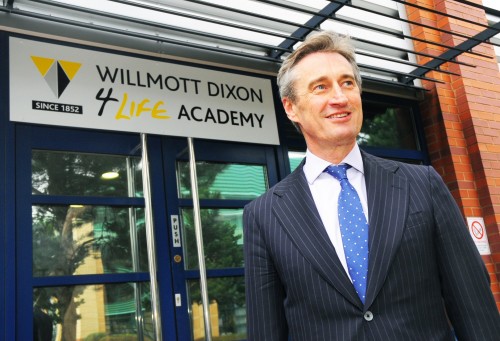House builder Willmott Dixon has outlined its efforts to reach ambitious carbon reduction targets for 2020, including renewed efforts to lower supply chain emissions and paying bonuses to employees if they switch to low emission cars.
The company’s Sustainable Development Review 2016 revealed the company has reached a 31% reduction in carbon emissions compared to its baseline year in 2010, relative to turnover. The report says this puts Willmott Dixon in “a good position” to achieve its target 50% reduction by 2020, despite only improving from the 30% reduction recorded in 2014.
Despite this slow progress, the company was able to hold on to its carbon neutral credentials for the fourth successive year by offsetting its unavoidable carbon emissions by investing in international carbon-reducing projects.
These include renewable energy and environmental projects in Brazil, Kenya and Uganda which reduce carbon by an equivalent amount to Willmott Dixon’s own emissions.
The company has also begun to purchase renewable energy for the requirements of its offices and plans to extend this usage over the coming years.
Despite these efforts, the house builder says the majority of its carbon footprint comes from its supply chain and scope 3 emissions covering transport, distribution and purchased goods and services.
It claims that 16 suppliers account for around 20% of its scope 3 footprint and so the company is now engaging with them to develop a baseline and identify ways in which to reduce associated emissions. This has allowed the company to achieve the Carbon Trust’s Supply Chain Standard, an accreditation for companies monitoring and managing supply chain carbon emissions.
Paul Smith, divisional chief executive of support services, and group director with responsibility for sustainable development, said: “Carbon emissions continue to be a material issue for our business – it takes a lot of energy to build, retrofit and maintain buildings. But only a fraction of the associated emissions are under our direct control. The majority actually comes from our supply chain.
“This is why we were pleased to be one of seven companies taking part in a Pathfinder initiative with The Carbon Trust, to investigate how companies might work together with their suppliers and subcontractors to address so-called Scope 3 emissions. As a result, we were the first in our sector to achieve The Carbon Trust’s new Supply Chain Standard.”
The firm has also sought to address transport emissions by staff, with around 31% of emissions coming from business and commuting by car. To address this, Willmott Dixon spent £20,000 in 2015 on rewarding employees choosing low emissions company or private cars. It has also placed electric vehicles on the company car list for the first time, offering higher green bonuses for people choosing these.
Other initiatives that have served the company in saving money from its emissions reduction efforts include work with the Energy Cost Advice Group to streamline the company’s energy billing processes. This has reportedly led to the best prices for electricity and saved the company nearly £250,000 between September 2014 and September 2015.
All of these initiatives are likely to continue to the end of the decade as the company works towards its 2020 goals. Rick Willmott, group chief executive for Willmott Dixon, said: “The next few years will see us empower our people further to identify new and exciting ways of achieving our sustainable ambitions.
“We will be working harder to foster innovation across our business and supply chain, through awards schemes, conferences and networking opportunities, and we’ll be doing more to align incentives to sustainability performance.”






